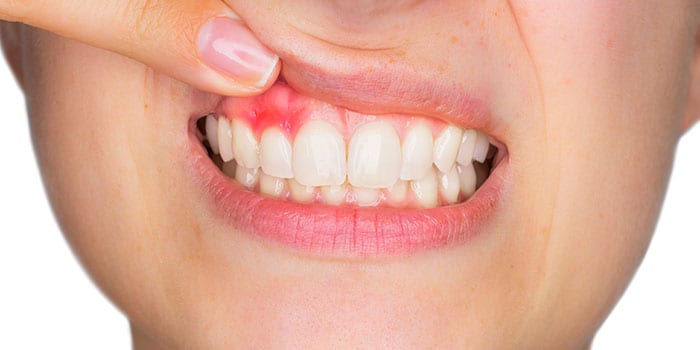December 31, 2018
Gum bleeding can occur for various reasons. Some might see a small amount of blood in the sink after brushing their teeth or flossing. In general, an occasional small amount of blood during your oral hygiene routine is not concerning. However, if your gums bleed more frequently, you should not ignore it.
What can cause gum bleeding?
Bleeding gums after your oral hygiene routine can easily be linked back to your toothbrush choice or flossing technique. However, in other cases, finding the underlying reason for the problem may be harder. Our Coastal Dental Care dentists have listed several reasons why your gums may bleed and what to do in those cases.
Build-up Plaque
Plaque is a sticky film of bacteria that builds up on teeth and gums. Usually, plaque is removed by regular, twice daily brushing and flossing. However, improper brushing or neglecting to maintain a daily flossing routine, can cause plaque to build up along the gum line.
Over time, this plaque can harden and develop into tartar which is a yellowish brownish mineral build-up that leads to further inflammation and bleeding of the gums.
Wrong Oral Hygiene Equipment or Technique
If your toothbrush is one with hard or medium bristles, or if you tend to press down hard when brushing your teeth, this can irritate your gums and cause bleeding. Change your toothbrush to one with soft bristles and monitor whether your gums recover over a period of 2 weeks.
You might also consider changing from a manual to an electric toothbrush. Certain electric toothbrushes have been proven to be more effective and aid the toothbrushing process. Learn about electric vs manual toothbrushes.
When you first start flossing, your gums may be irritated and bleed a little. This is a normal process and your gums will adapt to the flossing routine shortly after. Always keep in mind to be gentle when you floss and avoid pressing the floss against your teeth or gums too hard.

Unhealthy Food Choices
Your nutritional choices can also influence your gum health. A high intake of sugar and carbohydrates can increase the risk of bleeding gums as sugar encourages plaque to form. Try to reduce the amount of carbohydrates you eat. Try a diet low in sugar and high in vitamin C and see how this improves your teeth and gum health.
Medications
Bleeding gums can also be a side effect of medication you are taking. Blood thinning pain relievers such as aspirin can increase bleeding. Other prescribed medication can also cause gum bleeding.
If you are taking any medication, please talk to your doctor about your gum health to find out if it may be related to your medicine intake.
Pregnancy
Pregnant women have hormone fluctuations which can trigger bleeding gums or gum disease. For this reason, good oral hygiene and regular dental visits are very important during pregnancy.
Smoking
Smoking has been proven as a precursor to periodontal, or gum, disease. Periodontal disease is a bacterial infection that destroys the supporting soft tissues and bone that anchor your teeth to your jaw, and since it is an inflammatory condition, you almost always see heavily bleeding gums. Smokers also tend to have more calculus or tarter than non-smokers, as well as have an accelerated rate of gum breakdown, all of which leads to more bleeding around the gum line.
Gingivitis
Gingivitis is a reversible inflammation of the gums. It is a condition that can result in bleeding, swelling, and receding gums. It occurs when dental plaque continuously builds up close to your gum line and does not get cleaned. If the plaque is effectively cleaned away, the condition will resolve itself and your gums should return to a firm, pink and healthy condition.
What can I do about gum bleeding?
If you experience gum bleeding continuously over a long period of time, please make an appointment with a Coastal Dental Care dentist.
At your appointment, your dental professional will examine your gums and determine the cause of your gum bleeding. Oral hygiene tips and a professional clean which removes plaque and tartar (hardened plaque) will support you on the way to healthier gums.

